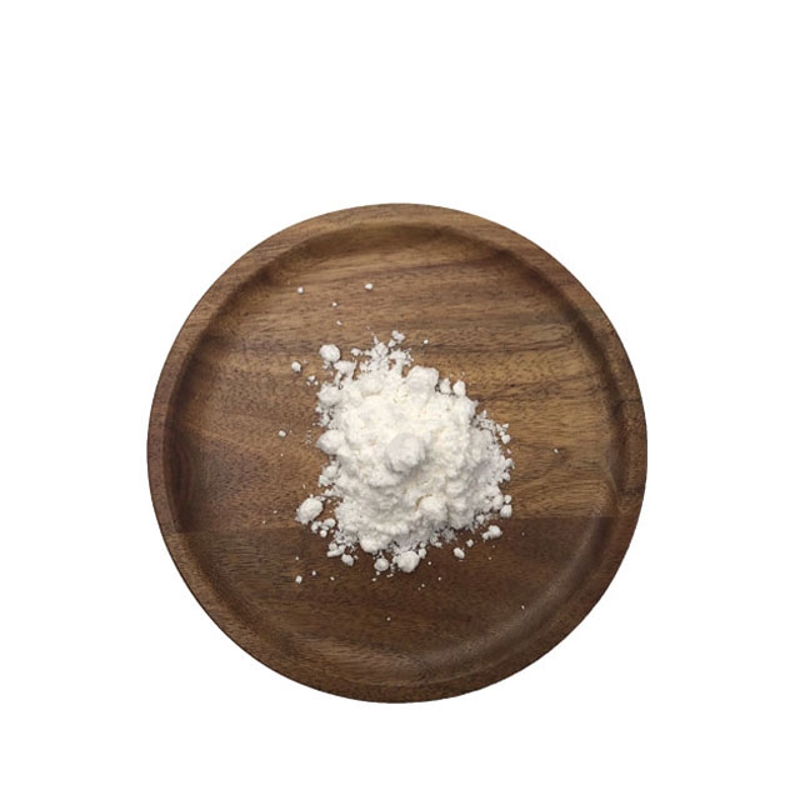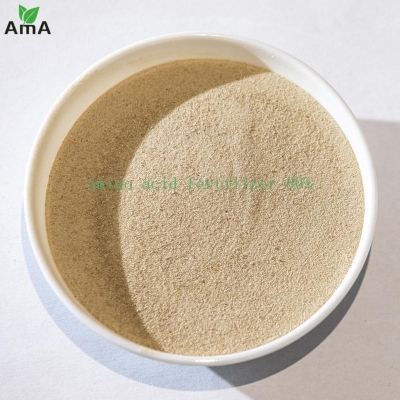-
Categories
-
Pharmaceutical Intermediates
-
Active Pharmaceutical Ingredients
-
Food Additives
- Industrial Coatings
- Agrochemicals
- Dyes and Pigments
- Surfactant
- Flavors and Fragrances
- Chemical Reagents
- Catalyst and Auxiliary
- Natural Products
- Inorganic Chemistry
-
Organic Chemistry
-
Biochemical Engineering
- Analytical Chemistry
- Cosmetic Ingredient
-
Pharmaceutical Intermediates
Promotion
ECHEMI Mall
Wholesale
Weekly Price
Exhibition
News
-
Trade Service
With the end of the seventh batch of collective procurement, the eighth batch of collective procurement has become a hot topic
in the industry.
Among them, the widely concerned "biological drug collection" finally received new news
.
The National Health Insurance Bureau issued the "Letter on the Reply to the Proposal No.
03703 (Medical and Health No.
329) of the Fifth Session of the 13th National Committee of the Chinese People's Political Consultative Conference", which replied to
the proposal put forward by member Zhu Yilong on the introduction of an access evaluation mechanism for new innovative drugs.
The reply letter clearly stated that the collective procurement rules
of biological drugs will be continuously improved in combination with the characteristics of biological drugs.
The sixth batch of national organizations for the centralized procurement of insulin for drugs has fired the "first shot" of biological drug procurement, and the medical insurance bureau's
reply letter is more oriented to the centralized procurement of biological drugs.
With the arrow on the string, the "national procurement" is poised to surge in the market of 10 billion
With the arrow on the string, the "national procurement" is poised to surge in the market of 10 billion The National Health Insurance Bureau said in its reply letter that at present, 6 batches of chemical drugs and 1 batch of biological drugs (insulin special) have been purchased in a centralized manner, and positive progress
has been made.
At the same time, the National Medical Insurance Administration also pointed out the difficulties in the centralized procurement of biological drugs: compared with chemical drugs, biological drugs have no consistency evaluation as support, the naming is complex and diverse, and the ramp-up of production capacity is slow
.
Therefore, the National Medical Insurance Bureau, together with relevant departments, has further adjusted and improved the rules on the basis of the centralized procurement of chemical drugs, and carefully formulated the rules for the centralized procurement of insulin taking into account the characteristics of biological drugs:
First, before the collection, the medical institution will report the demand according to the brand, and after the selection result is generated, the medical institution will select the selected product according to certain rules, fully respect the clinical choice, and maintain the stability
of clinical medication.
The second is to combine and group products with similar therapeutic purposes and clinical mechanisms but different generic names, taking into account the needs of clinical use and the adequacy
of competition.
Third, in view of the characteristics of biopharmaceutical production capacity constraints, fully grasp the production capacity of the enterprise through thorough investigation, set the agreed purchase volume not to exceed 50% of the maximum production capacity of the enterprise, and reserve sufficient production preparation time when landing, and take multiple measures to ensure supply
.
In fact, the National Health Insurance Administration has also issued news many times before, intending to "include biosimilars in centralized procurement"
.
This time, the National Medical Insurance Bureau clearly revealed the idea and guidance
of "including biosimilars in centralized procurement".
The reply letter stated that in the next step, on the basis of the existing successful experience of collective procurement, combined with the characteristics of biological drugs, the rules for collective procurement of
biological drugs will be continuously improved.
This also means that the promotion of centralized procurement of biopharmaceuticals may have entered the agenda
.
In February last year, the Drug Review Center (CDE) of the State Food and Drug Administration issued the Guidelines for Biosimilar Similarity Evaluation and Indication Extrapolation Technology, which specifically defined
the "similarity" of biosimilars.
This is considered by the industry to be the "consistency evaluation" of biosimilars, and it is also considered to be a preparation for biosimilars to be
included in centralized procurement.
The exploration and practice of insulin collection has also accumulated certain experience
for biosimilar tissue collection.
As a typical biological drug, insulin macromolecular products are different from small molecule chemical drugs, and cannot be simply evaluated for consistency, but compared with complex biological drugs, peptide insulin and insulin analogues have their special properties
.
In November 2021, the national special centralized procurement of insulin was opened, and the centralized procurement varieties of drugs this time were mealtime human insulin, basal human insulin, premixed human insulin, mealtime insulin analogues, basal insulin analogues, and premixed insulin analogues, a total of 6 procurement groups
.
It is estimated that the procurement demand for insulin collection in the first year of the national insulin collection was 210 million, involving an amount of 17 billion, and the average price of selected products decreased by 48%.
In fact, the centralized procurement of biosimilars has landed in Guangdong
.
On March 10, the quotation of 276 drugs such as diclofenac (the first batch) of Guangdong Alliance was launched
online.
From the published qualified declaration product information form, the batch covers 146 drugs, involving a total of 579 enterprises and 1608 specifications, of which rituximab, human growth hormone for injection, and recombinant human coagulation factor for injection are three biological drugs, hormonal drugs and blood products that the industry is more concerned about
.
Among them, the most concerned is rituximab, monoclonal antibody biosimilar domestic production, research in the number of enterprises, this Guangdong alliance centralized procurement, the industry believes that this type of biosimilar "first shot"
.
With the successive approval of biosimilars, the domestic biosimilar market continues to expand
.
Frost & Sullivan data shows that it is expected that by 2030, China's biosimilar market will reach 58.
9 billion yuan, and nearly 30 domestically produced biosimilars will be listed
within three years.
From the perspective of the competition pattern of the domestic biosimilar market, many products have met the conditions of full competition of 3 companies and have a certain market scale, with the medical insurance bureau clarifying the next step in the rules of biodrug collective procurement, the next batch of biosimilar centralized procurement is on the line
.
The herd is chasing the deer, and domestic biosimilars are developing rapidly
The herd is chasing the deer, and domestic biosimilars are developing rapidly Biosimilars are therapeutic biologics
that are similar in quality, safety and efficacy to approved biogenic innovators.
"Similarity" means that the drug candidate is similar to the approved reference drug as a whole, and there is no clinically meaningful difference
from the reference drug in terms of quality, safety and efficacy.
Biosimilars have experienced a long development process in Europe and the United States, and in recent years, the domestic biosimilar field has also been booming, and it is in a situation of competition with a hundred flowers
.
At present, about 180 domestic pharmaceutical companies have laid out the product research and development of biosimilars, involving a total of about 400 drugs, and most of the biosimilars under research are concentrated in CD20, VEGF, HER2 and other popular targets, and the competition will be self-evident
.
The biosimilars listed by domestic pharmaceutical companies are mainly these six: bevacizumab, adalimumab, trastuzumab, rituximab, denosumab and infliximab
.
Bevacizumab is one of the most competitive biosimilar drugs, with more than 40 pharmaceutical companies competing for layout
in the market of more than 10 billion.
Up to now, a total of 10 kinds of bevacizumab drugs have been approved for marketing in China, including Roche, Henlius, Dongyao Pharmaceutical, Betta Pharmaceutical, Bio-Thera, Dongboan Biologics, Innovent Biologics, Qilu Pharmaceutical, etc.
, and many others are in the registration application or clinical trial stage, and the market competition is very fierce
.
Bevacizumab is a humanized monoclonal antibody IgG1 developed by Roche, which is an angiogenesis inhibitor and the first drug approved in the United States to inhibit tumor angiogenesis in 2004
.
Due to its wide range of indications and excellent efficacy on many types of tumors, the annual revenue of the first complete sales after listing exceeded 1 billion
.
According to data from Intranet, bevacizumab showed steady growth in the sales terminals of domestic sample hospitals from 2016 to 2021, growing every year
.
In 2020, the sales result was 1.
731 billion yuan, a year-on-year increase of 18.
08%, and the annual sales in 2021 were 2.
551 billion yuan, a year-on-year increase of 47.
43%.
In terms of competitive landscape, the original research manufacturers Roche and Qilu Pharmaceutical occupy an absolute position in the market, accounting for more than 90% of the total; As the first generic Qilu Pharmaceutical, it has a market share of 55.
34%, and several manufacturers approved in the next two years can only get less than
10%.
Followed by adalimumab, domestic manufacturers have reached 6.
The original pharmaceutical companies are AbbVie, and the biosimilar pharmaceutical companies are Biothera, Hisun Pharmaceutical, Innovent Biologics, Henlius, Chia Tai Tianqing, and Junshi Biologics
.
There are at least 20 companies under research that are closely focused on the adalimumab biosimilar market
.
According to the Frost & Sullivan report, China's adalimumab biosimilar market will increase to 4.
7 billion yuan in 2023 and reach 11.
5 billion yuan in 2030
.
According to the national centralized procurement rules, products with large dosage, high procurement amount + clinical necessity + reliable quality are included in the medical insurance catalogue, and the
competition is relatively sufficient.
The national centralized procurement should not only save medical insurance funds, but also ensure quality and supply to benefit
patients.
It can be seen that a variety of domestic biosimilars are basically eligible
.
With the improvement of the R&D level of pharmaceutical enterprises in China and the liberalization of policies, biosimilars in China have developed rapidly in recent years and have shown obvious clinical advantages in the treatment of some diseases, so the impact of including biological drugs in the scope of centralized procurement on enterprises cannot be ignored
.
In the eyes of industry insiders, centralized procurement and medical insurance negotiations are topics that must be discussed in China's biopharmaceutical industry in recent years, and they are also issues
that all biopharmaceutical companies living in China cannot avoid.
The dilemma of collective procurement and the difficulty of homogenization competition mentioned earlier are similar to the root cause, that is, there are too many companies producing the same drug, and they can only fight for the market
at lower prices.
However, the national centralized procurement is not to blindly let enterprises reduce prices, but to ease competition, so that domestic pharmaceutical companies carefully choose to develop drugs, not only to avoid excessive concentration of products, too fierce competition to lead to too low prices, but also conducive to the domestic head enterprises to develop more clinically valuable drugs
.







